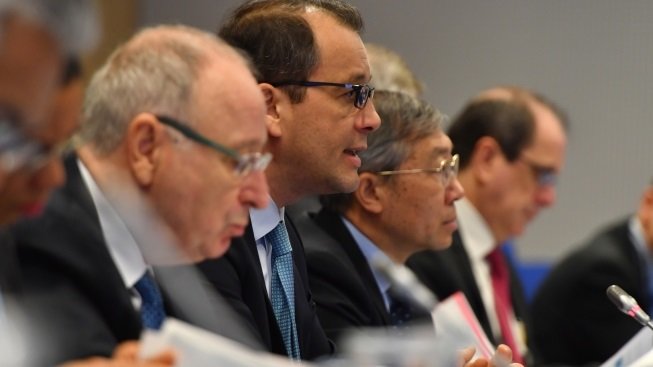“The EU and the IAEA reaffirmed support for the Joint Comprehensive Plan of Action (JCPOA) based on their respective mandates. The EU High Representative, as Coordinator of the Joint Commission established under the JCPOA, will remain in close contact with the IAEA regarding continued implementation of the agreement,” the IAEA said in a statement.
It added, “The talks on 8 February at the IAEA’s headquarters provided a forum for exchanging views on strengthening collaboration on nuclear safety, security, safeguards, sustainable development, nuclear energy research and increasing innovation.”
Iran and six world powers – namely the U.S., Russia, China, France, Britain, and Germany – signed the nuclear deal, also called the JCPOA, in July 2015 and started implementing it in January 2016.
Under the accord, Iran undertook to apply certain limits to its nuclear program in exchange for the termination of all nuclear-related sanctions against Tehran.
U.S. President Donald Trump is opposed to the JCPOA, which was negotiated by his predecessor, Barack Obama. Last month, he extended sanctions waivers on Iran, lifted under the nuclear agreement, for another 120 days but said he was doing so “for the last time.”
He further called on European allies and the U.S. Congress to work with him to fix what he called “the disastrous flaws” in the pact or face a U.S. exit.
‘Blocking regulations’
Meanwhile, an EU official said the 28-nation bloc could put in place “blocking regulations” to ensure that its companies continue doing business with Iran if the United States pulls out of the JCPOA.
Denis Chaibi, head of the Iranian task force at the EU’s external action service, told the Euromoney Iran Conference 2018 in Paris on Thursday that in case of a U.S. withdrawal, one of the bloc’s options would be to restore “blocking regulations,” which were agreed in 1996 amid Washington’s economic sanctions against Cuba.
“We are looking at a number of possibilities. It is not complicated to do it legally in that the legal instrument exists, but it doesn’t require a huge internal debate,” Chaibi said.
The EU rules “could be revived or put back, but only if it is clear that the U.S. is putting back sanctions with extraterritorial sanctions and that they are being applied. It can’t be done protectively,” he added.
France spurs its companies to Iran business despite JCPOA limbo
 On the other hand, France encourages its companies to keep doing business in Iran in spite of objections raised by U.S. President Donald Trump over the landmark 2015 nuclear deal- known as the joint comprehensive plan of action (JCPOA), director of bilateral relations at the French Finance Ministry told a Euromoney Iran conference on Thursday.
On the other hand, France encourages its companies to keep doing business in Iran in spite of objections raised by U.S. President Donald Trump over the landmark 2015 nuclear deal- known as the joint comprehensive plan of action (JCPOA), director of bilateral relations at the French Finance Ministry told a Euromoney Iran conference on Thursday.
“We are in limbo on the international scene. Nobody knows what will happen after May. This is the uncertainty our French companies are facing, and this is something you have to take for granted if you want to do business in Iran,” Reuters quoted Joffrey Celestin-Urbain as saying at the second round of the one-day Euromoney Iran Conference, which was held in Paris, co-hosted by Central Bank of Iran (CBI).
The conference, attended by different Iranian top officials including Iranian Deputy Finance Minister Mohammad Khazaie and CBI Governor Valiollah Seif sought to bring together Iranian bankers and industrial leaders with their international counterparts to discuss and debate the key issues around Iran’s reintegration into the global economy.
France and other European countries have been looking to increase trade with Iran since Paris, Washington and other world powers agreed to lift most economic sanctions on Iran in exchange for limitations on Tehran’s nuclear program.
But President Trump on January 12 vowed to restore U.S. sanctions unless France, Britain and Germany change the agreement to his liking. That has effectively put it on life support until mid-May.
According to Celestin-Urbain, France’s short-term priority was to keep trade simple and complete a scheme this year to offer euro-denominated credits to Iranian buyers of French goods, a move that would keep bilateral trade outside the reach of U.S. sanctions.
“There is barely any private financing channel from France to Iran, so it prompted us to step in. We are hoping to finalize soon,” he added.
TEHRAN TIMES
R.S

